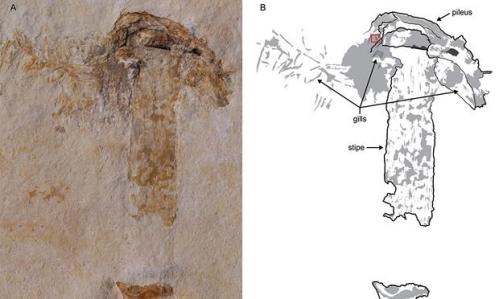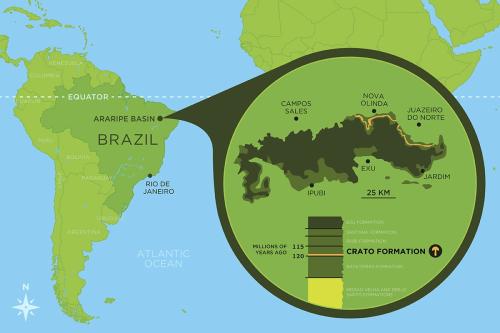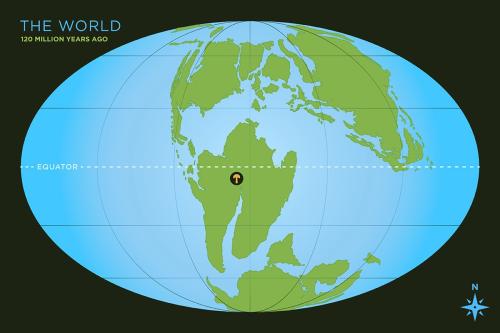Scientists have discovered a rare 115-million-year-old mushroom fossil that sprouted during the era of the dinosaurs, the oldest such specimen found by far.
The two-inch (five-centimeter) fungus, similar to its distant contemporary descendants, was found in Brazil, then part of the supercontinent Gondwana.
The enormous landmass later broke up to form South America, Africa, Antarctica, India and Australia.

The world's oldest fossil mushroom was preserved in limestone, an extraordinarily rare event, researchers say. /University of Illinois Urbana-Champaign (UIUC)Photo
Studying the fossil under an electron microscope, scientists found that the ancient mushroom had gills under its cap as well as spores, which help identify fungus species, said Sam Heads, a paleontologist with the University of Illinois Urbana-Champaign who co-authored the study in the June 7 issue of the journalPLOS One.
The scientists called the specimen "Gondwanagaricites magnificus" in a nod to its place of origin.
After falling into a river possibly during a flood, the fungus was carried into a lagoon where it was buried under sediment and fossilized, a scenario backed up by fossils of insects and plants found at the same location.

The mushroom was uncovered in the Araripe Basin, in northeast Brazil, in a limestone layer called the Crato Formation. /UIUC Photo
The water in the lagoon must have been salty and contained little oxygen, which helped preserve the mushroom, according to Heads.
"The fact that this mushroom was preserved at all is just astonishing," he said. "Most mushrooms grow and are gone within a few days."
Mushrooms' soft, fragile structures decay rapidly, making the chances of fossilization extremely low, he said.
Although fossilized remains of fungal filaments dating back hundreds of millions of years have previously been discovered, only 10 whole fossilized mushrooms have been found, the oldest of which dates back 99 million years.

The mushroom lived during the Early Cretaceous, a time of dinosaurs when the ancient supercontinent Gondwana was breaking apart./UIUC Photo
All those mushrooms were fossilized in amber. Fungi evolved before land plants and are responsible for their transition from an aquatic environment, the scientists said.
When "Gondwanagaricites magnificus" were growing, the very first flowering plants were appearing, undergoing major evolution, Heads said.
"There were dinosaurs stomping around, pterosaurs flying around in the sky – lots of different fauna."
(Source: AFP)